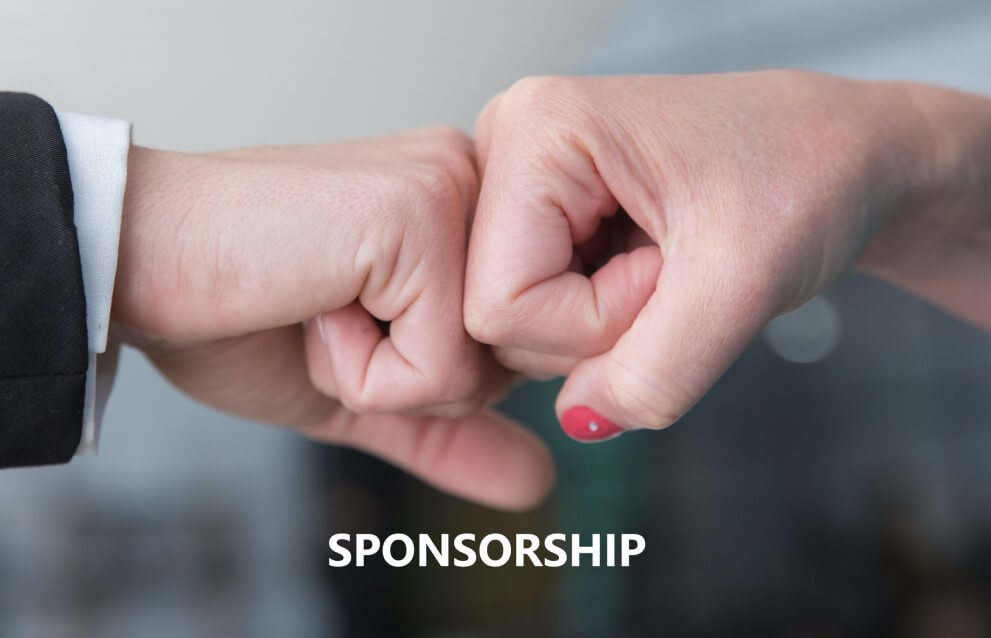Festival and Event Sponsors are an essential part of the success of any event. Developing those sponsorships is key to producing and growing successful festival or events. They can help you generate needed revenue and help take your event to the next level by providing the funds to make your event more amazing. Sponsorships can also help you to build a solid ongoing business relationship with sponsors for future events. Most festivals or events wouldn’t happen if it weren’t for sponsors. They partner with the event to provide the revenue or in-kind services they to put on a successful fair, festival, or other kinds of events.
If you’re planning an event or festival, you need to put sponsorship development at the top of your list. Remember that sponsors are a great source of revenue as well as gaining those business relationships.
When You Should Propose the Sponsorship
Pitching sponsorships should align with businesses’ budget cycle. The big question is when should you start to approach these businesses to sponsor your event?
Let’s talk about budgeting and when it’s the right time to connect with a business about sponsoring your festival or event. Traditionally before the pandemic, most businesses began to put together their budgets for the following year somewhere between May and October, which is called “upfront season.” This means that if you wanted to secure a big sponsorship you would need to seek them out right after the time, they have created their annual budget. The pandemic changed this timing a little bit. Budgets are now being created all year round because of the uncertainty that the pandemic created in the business world.
What does this mean for anyone proposing a festival or concert sponsorship? It means that the best time to pitch your sponsorship idea is between 6 months to a year ahead of your event date. You want to reach that business before their annual budget has been spent. It’s never great when you’ve worked hard on a great pitch for a business and get all the way to the proposing step when your prospective sponsor says that they don’t have enough left in their budget. To avoid this, it’s best to pitch your idea as soon as you can while planning your event.
Targeting Sponsors for Your Festival
When developing your sponsorship proposal, the first step is to look for a business that would fit in well with the event. You want to find potential sponsors that reflect the same values and civic engagement as your event. You would also want to find a sponsor that makes sense with the demographic of those you expect to attend your festival, concert or other type of event.

Pitching to Possible Event Sponsors
The next step would be to pitch the idea of becoming a corporate event sponsor to those prospective businesses. A pitch, which is different from your proposal, is a general presentation of all of the options that there are for the prospective sponsor. This is where you point out all of the potential sponsoring options to that business. Pricing should not be involved in this particular step because we just want to see if there is any interest. This step should be done about a month or less than a month after you’ve found the businesses that are ideal for your event.
Presenting the Sponsorship Proposal
The last step in proposing a sponsorship is the actual festival or event sponsorship proposal. Once a business shows interest in being a part of your event, it’s time to present the proposal. Before presenting you customize the proposal to fit the potential sponsor’s needs. The sponsorship proposal should be a more detailed presentation. It’s focused on the wants of the business for engagement at the event. This could include everything from pouring rights, to presenting rights or even having stage branding. Your proposal should have one price point and not include an itemized pricing list of each item. This allows negotiation to take place to get to a place where both parties are satisfied. This final step of presenting the sponsorship proposal should take place shortly after your pitch and you get interest.
The Sponsorship Development Timeframe is Critical
Getting Sponsorships for your event can be the difference in having a successful event. in some cases, it can even mean whether the festival or concert can take place at all.
Knowing when to propose your event sponsorship is a critical part of the sponsorship development process. Plan ahead if sponsorship is part of your plan. After all, you want to make your event the best that it can be.
If you’re needing help with sponsorships, reach out to TSE Entertainment. TSE has sponsorship development as one of its many services for festivals, concerts, and live entertainment events.
If you want help improve your chances at getting the sponsors you seek, contact us today.
Related Post:




